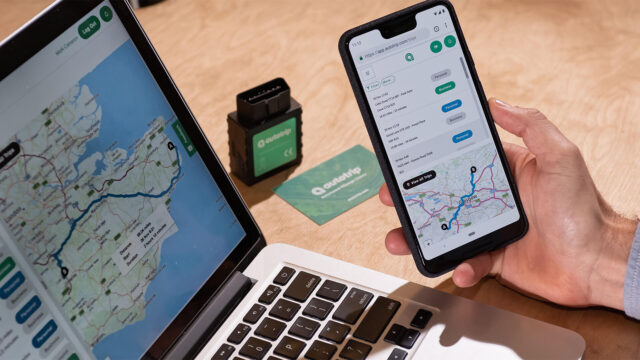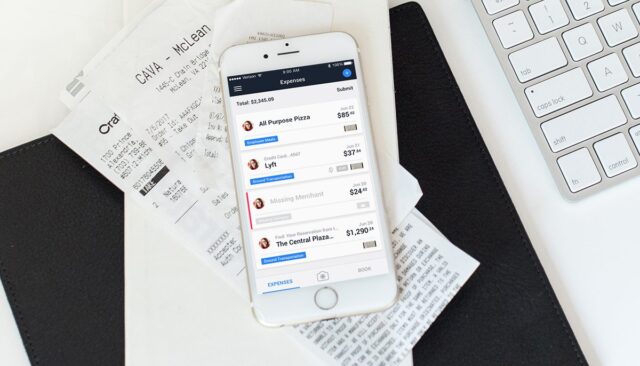
While on a business trip, there are certain expenses that you need to report, and even though it can be a pretty challenging task to track every expenditure, it’s something that every employee needs to do.
Of course, since it is a delicate thing, it’s easy to make a mistake, which is why we will focus on the most common ones.
1. Not tracking mileage

Yes, everyone will state that this is one of the most important things that you simply cannot overlook, but in reality, this is where most people make a mistake. Tracking mileage expenses is the thing that can have a huge impact on the report, which is why failing to do so can affect the overall costs in the report.
Meeting customers and clients is part of the job, which is why traveling long distances is sometimes simply a must, not to mention going to conferences. Using expense management software can be of huge role here, as it is designed to track all the mileage and overall expenses on the fuel.
Besides that, a GPS tracker is also something that goes with this software, which simplifies everything as it gives real-time mileage info at any given time. In that way, you will have detailed information at any moment, and filing the report will be a much simpler process.
2. Forgetting about cash payments
Dealing with the company money via credit cards is great, as all the payments and expenses are paid, and you do not need to report them, but what about expenditures and things you paid for in cash? Yes, this is yet another thing to file into your report while on business travel because, for certain things, you must pay in cash. Of course, filing a receipt to verify the purpose of cash payments is a must, as it is the only way to justify the costs, but overall, you should always file it into your travel report.
It can be a little boring to write down every cash transaction, but if it is not done, the company will not return you the money spent on improving the company operation, and instead of having nice memories from a business trip, you will end up spending your own money. Since it is easy to forget about some transactions as there can be a lot of them, the best idea is to use a piece of paper and write it down right after paying, or, even easier, make a note on your phone.
3. Some expenses do not qualify for reimbursement

Once we go on a business trip, it is crucial to know which expenses are qualified for reimbursement, or we will not be able to write a report. It is different in every company, and because of that, it is important to ask before spending more than you can afford and not be certain that you will get that money back. Some companies reimburse everything from meals, accommodation, parking expenses, and even tips, while some will return to you only some of them.
The most confusing are meals, as in some companies, workers get their money back only for lunch with business partners, while they need to pay for their own meals when eating alone. Because of that, checking the classification in time is necessary, as none of the non-qualified expenses will be returned. Each company has a strict policy about that, and reading that document in time is something every worker should do before going on a business trip.
4. Not adapting travel policy
Sometimes we can find ourselves in a situation where we need to change and adapt the travel policy, and not doing that can result in losing more money than we should. For example, if we are running a local company that operates only around the city we are living in, expenses can be low, and it can be pretty easy to qualify all of them for reimbursement.
But, if we decide to expand the market to the cities nearby or overbroad, these expenses will be much higher. It is why it is important to change the travel policy whenever the circumstances change, or our company will not have enough money to pay each worker. It can be a pretty difficult job, as it requires a lot of information about the prices in the nearby city or another country, but it needs to be done if we want our company to improve.
5. Not keeping the receipts

As we have already mentioned, a receipt is proof that we have spent a certain amount of money at a certain location, and losing or not keeping them is never a good idea. Once we file a travel and expense report, we need to possess each receipt we want to reimburse, or the company can refuse to pay us the money back, and we can end up losing money that we did not plan to.
Since we can easily forget the importance of keeping all the receipts, the best idea is to keep them in one place, and a bigger wallet or a purse can be perfect for that. Simply put the receipt in your wallet right after receiving it, and you do not need to worry that some of them will be lost. Once it becomes a habit, you will not worry about that, and it will become automatized, so you will be sure that all the receipts are kept.
To summarize
Filing a travel and expense report is not difficult, but as you can see, there are some common mistakes that many people make, but they are pretty easy to avoid if we learn how to recognize them.
One simple mistake can leave us without reimbursed money, and we can easily end up spending our own money on a business trip and face big losses instead of enjoying the trip. Because of that, it is crucial to know how to avoid these mistakes and always check twice whether the report is properly filled out before submitting it.







